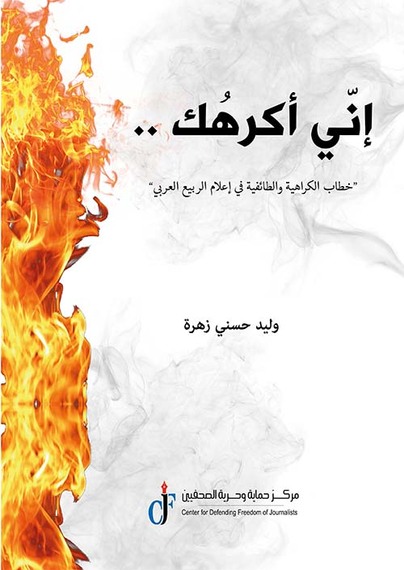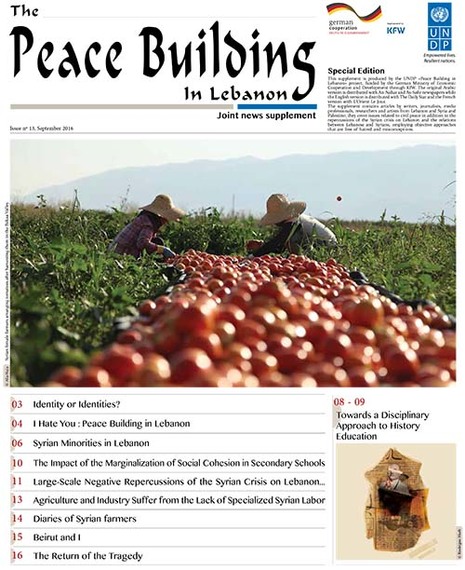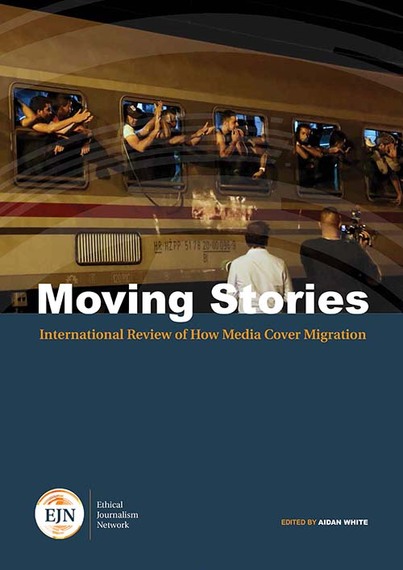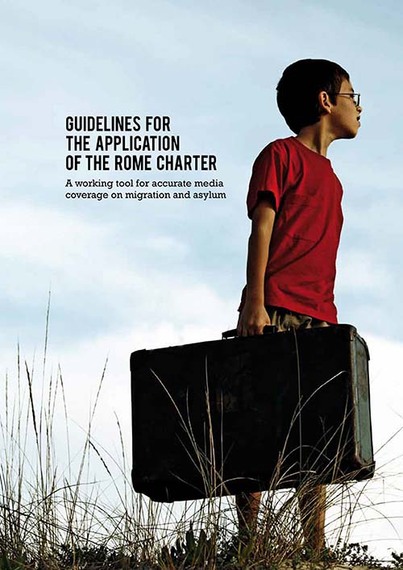"I Hate You."
A powerful statement and title of a 385-page study on hate speech and sectarianism in "Arab Spring" media.
It's also a reflection of countless Arab world afflictions that was published in 2014 by the Amman-based Center for Defending Freedom of Journalists (CDFJ).
"In the Arab Spring's crisis, it is hard to provide a stamp of innocence to exonerate Arab media from responsibility in the spread of hate speech, since most are co-conspirators in their practice, or in their silence," wrote CDFJ Executive President Nidal Mansour in the book's foreword.
It plunges into case studies of hate speech in Jordan, as manifested against Syrian refugees, but it may as well have been addressing the issue in Lebanon, where a host of similarities exist.
Fast forward to 2016, with an increasingly hostile environment to Syrian refugees escaping a bloody and protracted conflict in their country to neighboring Lebanon.
Which has prompted organizations such as the Racism Observatory Campaign to document cases of human rights and other violations against Syrian refugees and displaced persons across the country.
RAC's Facebook page is full of pictures, videos and posts on how Lebanese are reacting to the growing Syrian presence in Lebanon.
The justifications for the xenophobia are plentiful as Lebanon and its wobbly economy and infrastructure groan under the weight of some 1.5 million Syrians, depending on whose statistics one believes.
At issue are added pressure on water, electricity, food supplies and health care, to sewage and garbage disposal, competition for jobs, security concerns, and a rising crime rate, many Lebanese attribute to the bloated foreign presence.
Residents of various towns and villages have imposed night curfews on Syrian refugees to mitigate dangers posed by "marauding strangers."
In some areas, locals have armed themselves following a spate of break-ins, thefts, assaults, rapes and murders.
Another major concern is that the Syrians who tend to have a high birth rate, like Palestinian refugees before them, would make Lebanon their permanent home and become naturalized.
This would throw an already precarious demographic equation completely off-balance by turning Lebanon into a "depot for war refugees," headlined Al Joumhouriya newspaper.
That prompted Catholic Maronite Patriarch Beshara El Rahi to call for the refugees' relocation to protected areas inside Syria until the war, well into its fifth year, ends.
"There should be another measure for them to find safe zones in Syria," The Daily Star quoted him as saying.
A blogpost by Stephanie Matar - no longer online - attributed hate speech in Lebanon to: culture (consumer products with racist names); social environment (inbred racism); legislation (racist and misogynist laws); external factors (a reflection of the region and neighboring countries); money (media's close ties to politics); and, social media (politicians and others take to different outlets to lambast media and each other).
Which begs the questions: What comes first, the chicken or the egg? Who provokes first, thereby triggering violent reactions? Why is there no rational discourse? Why is logic in such short supply?
It is not just the absence of credible and effective state institutions, such as a vacant presidency for over two years, a record-setting level of corruption across the board in state and private organizations, or endless reports of violence and armed assaults, but how children reflect their home environments and how they are raised on a steady diet of mayhem, as if it were normal and acceptable.
According to Lebanese University media professor Nassim El Khoury, provocation and sedition via the media, notably broadcast outlets, has turned them into platforms for insults, denigration, fear mongering and obfuscation of facts.
It's probably a holdover from Lebanon's 1975-90 Civil War as well as the collective amnesia and denial that grip many Lebanese who still refer to that conflict, euphemistically, as "the events" or "the incidents."
The fact that the country's academics seem unable, or unwilling, to agree on a credible schoolbook detailing Lebanon's contemporary, conflict-ridden history is a testament to their ineffectiveness and intellectual impotence.
Dr. Guita Hourani, Director of the Lebanese Emigration Research Center and Assistant Professor at Notre Dame University's Faculty of Law and Political Science, told me last year that Lebanese and foreign media coverage had contributed to the stereotyping of both refugees and host country Lebanon.
Her comments were part of a chapter I wrote on Lebanon in "Moving Stories: International Review of How Media Cover Migration" and in which I detail case studies of outrageous journalistic behavior.
So is there a light at the end of the tunnel?
Stephanie Matar's blogpost recommended the following:➢Updating invalid legislation, notably Lebanon's Publications Law, so that social media define humanitarian standards.➢Spreading a culture of human rights to create awareness among citizens about their social media, and all forms of communications, rights.➢Understanding international legal humanitarian culture.➢(Lebanon's) national society must reconcile itself with itself.
Proponents of "constructive journalism," meanwhile, recommend:➢A solution-oriented framing of the news.➢A productive perspective about the future, and about our ability to get there.➢Being critical, but never cynical.➢Putting new questions to power (government and officials), so-called victims and experts, inquiring about resources, collaborations and solutions on issues of high societal significance.➢Utilizing data to create infographics and other tangible visuals to explain the news, notably given people's short attention spans.➢Engaging and empowering the public and co-creating with them.
Journalists covering the refugee and migration story would do well to read "Guidelines for the application of the Rome Charter: A working tool for accurate media coverage on migration and asylum."
An incredible irony is that Hanan Al Houroub - whose family name means wars in Arabic - a Palestinian mother and instructor from Al Bireh, became a symbol of forgiveness and won the "Best Teacher in the World" award in 2016 for her peaceful teaching methods against Israel's formidable occupation and war machine.
Saferworld, an organization dedicated to preventing violent conflict and building safer lives, launched a campaign to promote peace and coexistence in Yemen, another country plagued by strife.
Its initiative includes a video entitled "Let's Coexist," and in August 2016 it announced it would pilot a remote learning peace-building course for activists in Yemen using the popular mobile phone app 'Whatsapp.'
It also published useful briefing papers entitled "The Syrian refugee crisis: Understanding and responding to tensions and conflicts in Jordan, Lebanon and Turkey," the three countries with the largest number of Syrians fleeing the war. A concerted effort to promote media and information literacy is a key component in the fight against extremism and ignorance. I have been advocating (and practicing it) for about two decades.
There is no shortage of enterprising and innovative ways to counter violence, hate speech, xenophobia, racism, and other tribulations afflicting Lebanon. People of good will are already hard at work to reverse, or slow down, these manifestations.
But it's an uphill struggle that requires the media's cooperation, positive engagement on all levels, and perseverance. The simplest solutions usually work best.
(This article appeared in a newspaper supplement on peace building in Lebanon produced by the United Nations Development Program in English, Arabic and French.)




